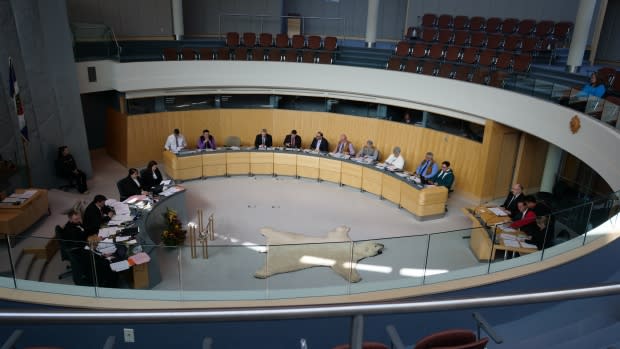N.W.T. gov't running out of time to pass key laws before next election: MLAs
Some MLAs are concerned pieces of devolution legislation the Northwest Territories government promised to pass during the 18th Assembly are still on the drawing board with less than a year to go before the next election.
Those bills affect land management, the environment and industrial regulations in the territory. They will replace laws that were copied and pasted from previous federal laws with devolution.
Examples include laws governing land use, oil and gas extraction, and mining. The government committed to passing them in its mandate, first released in 2016 and revised last year.
Ten of those bills are in various stages of the legislative process, but none of them are ready to be debated in public, according to the territorial government's online mandate tracker.
This work should have happened right after devolution, or at least at the beginning of this assembly in 2015, says Kevin O'Reilly, the MLA for Frame Lake.
"We've had devolution for four-and-a-half years," he said. "Not one word of the mirror legislation [from devolution] has been changed."
"The premier promised that we were going to 'devolve and then evolve.' The second part just hasn't happened," O'Reilly said. "The biggest piece of legislation to pass [in this assembly] was the cannabis bill, and that had nothing to do with our government. It was a federal initiative."
There's lots of legislation that's just not going to get done this assembly. - Kevin O'Reilly, Frame Lake MLA
But Premier Bob McLeod insists there's still time for the government to accomplish its mandate goals — even as 126 of the 230 commitments remain unfinished with less than a year until election day.
"We've been working on it for four years now, we're tracking all of the work, reporting on a regular basis," he said.
"If you went through it commitment by commitment [you'd see] a lot of them are ongoing commitments," he said. "Those I expect will be quite easily fulfilled."
In the Northwest Territories consensus government system, new legislation often requires four months of consultation and public debate between the bill's introduction and its passage in the legislature.

"I don't think it started early enough, it just wasn't done in as a collaborative fashion as it could have been, particularly at the very beginning," O'Reilly said. "There's lots of legislation that's just not going to get done this assembly."
Much of the devolution legislation will have to come before the territory's Standing Committee on Economic Development and Environment.
Cory Vanthuyne, the committee's chair, says he too is concerned about the government's pace in bringing this legislation forward.
"It's a little bit concerning that at this point," he said. "We made [passing these laws] a priority. Here we are, a couple of years in, down to the final year and a number of those key pieces, we haven't seen."
These particular pieces of legislation should set out clear guidelines for people with interest in doing business in the Northwest Territories, Vanthuyne said, using the favoured government phrase "made in the North" to describe why it's important.
Though Vanthuyne's not as pessimistic about whether those bills will eventually get passed as O'Reilly, he says a lot will need to happen in a short period of time if the government is to hit the targets set out in 2016.
"I'm not going to say that we're not going to [pass] it yet," he said. "But I am in a position to say that committee is concerned about the pace in which we've received things."

